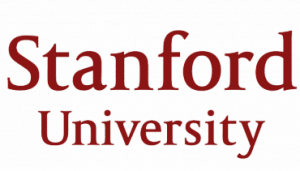CISAC Fellowship Program

Our Fellowship application for the 2026-2027 academic year is now open. Click here to apply. Deadline to apply is December 3, 2025.
CISAC Fellowships
CISAC fellows (predoctoral, postdoctoral, and junior faculty) may focus on a variety of security topics, including: nuclear weapons policy and nonproliferation; nuclear energy; digital security (cyber, artificial intelligence and autonomous systems); biosecurity and global health; insurgency, terrorism and civil conflict; national security strategies; and global governance.
We welcome other research proposals, and we will consider applicants from the U.S. and abroad. CISAC welcomes applications from women, minorities, and without regard to citizenship. Applicants will be considered for all fellowships for which they are deemed eligible.
Fellowship Opportunities by Research Area
Biotechnology Innovation & International Security Fellowship
The Center for International Security and Cooperation (CISAC) invites applications for a two-year, project-specific postdoctoral fellowship in biosecurity policy. The fellow will work under the supervision of Prof. Marc Lipsitch on a collaborative project to assess the social and scientific value of “risky research,” virology experiments that may generate population-level biosafety or biosecurity risks. The project aims to develop practical criteria and frameworks for evaluating the benefits of such research and integrating them into existing risk management and policy processes. Work may include defining counterfactuals for evaluating research value, developing criteria to assess scientific and social benefits, analyzing the scope of those benefits, and designing pathways for implementation in executive, legislative, regulatory, and international contexts. The fellow will take primary responsibility for developing, writing, and publishing work from this project in close collaboration with Prof. Lipsitch and Prof. M. Anthony Mills (American Enterprise Institute / University of Notre Dame). This interdisciplinary work sits at the intersection of biology, biotechnology, ethics, philosophy of science, and public policy. The ideal candidate will hold a PhD in one of these or a closely allied field and demonstrate the ability to work across science, philosophy, and policy domains.
For an expanded position description, please visit this link.
India-U.S. Security Studies Fellowship
The India-U.S. security studies fellowships at the Center for International Security and Cooperation at Stanford are designed to support early career scholars (pre-doctoral, post-doctoral and junior faculty) whose research focuses on topics such as Indian foreign and defense policy, U.S-India-China security relations, nontraditional or sub-conventional security threats affecting South Asia, security threats in the Indo-Pacific region, or the India-U.S. strategic partnership. These fellowships offer engineers, scientists, historians and social scientists the opportunity to focus on issues related to Indian and U.S. security issues in collaboration with other scholars in our dynamic academic community. Alongside their scholarly work, fellows are expected to produce directly policy-relevant work, such as a media appearance, a published article on a reputable website, or a written briefing for a government or international organization. The fellowships provide one year of support for research at Stanford and opportunities for collaborative research in the United States and India. The fellowships are sponsored by the Motwani Jadeja Family Foundation.
Natural Sciences or Engineering International Security Fellowship
Fellows with backgrounds in the natural sciences and in engineering may use their technical expertise from the public and private sectors, the national laboratories, and the military to: pursue research projects on the intersection of hard science, policymaking, and international security; and to hone their science communication skills.
Nuclear Security Fellowship
The CISAC Fellowships are intended to promote training and policy-relevant scholarship in three interrelated areas: nuclear weapons policy in a changing global context; nuclear terrorism and transnational flows of materials and knowledge; and nuclear energy and nonproliferation challenges. They are designed to aid in the development of the next generation of thought leaders in nuclear security by supporting research that will advance policy-relevant understanding of nuclear-related issues. They offer engineers, scientists, and social scientists the opportunity to focus on issues related to nuclear security. Alongside their scholarly work, fellows are expected to produce directly policy-relevant work, such as a media appearance, a published article on a reputable website, or a written briefing for a government or international organization.
International Security Fellowship
CISAC fellows (predoctoral, postdoctoral, junior faculty, and professional) may focus on a variety of security topics, including: nuclear weapons policy and nonproliferation; nuclear energy; cybersecurity, cyberwarfare, and the future of the Internet; biosecurity and global health; implications of geostrategic shifts; insurgency, terrorism, and homeland security; war and civil conflict; consolidating peace after conflict; as well as global governance, migration, and transnational flows, from norms to criminal trafficking. This fellowship is co-sponsored with the Carnegie Corporation of New York.
Questions? Contact us at CISACfellowship@stanford.edu.


